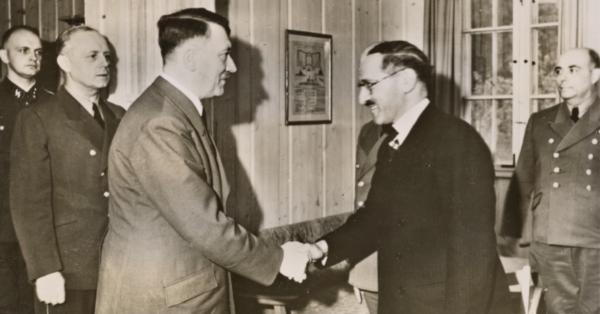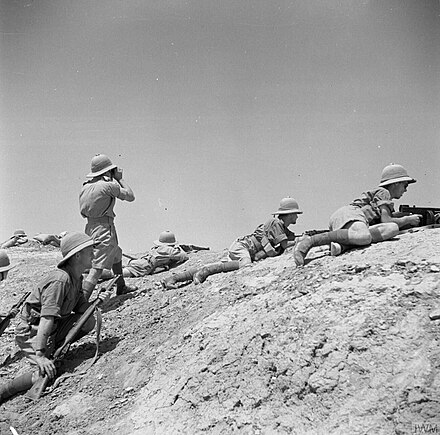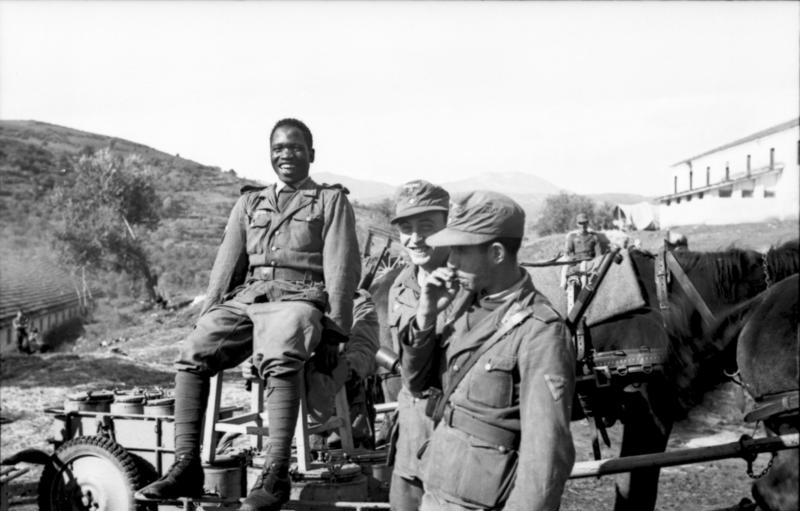WW2 is a war that has marked a lot of people due to the sheer size of nations that were involved in it and the huge impact it had on modern history. However, many people usually forget many nations that were involved in the conflict due to their limited involvement or distance from Europe or Japan and China. One of such nations, is the Iraq, or as it was known back then, the Hashemite Kingdom of Iraq.
As for how I stumbled upon this, it was surprising. I was reading about the history of the Middle East especially from countries like Egypt, Iraq and Lebanon out of sheer curiosity of learning more about my ancestors whom are Lebanese. And that’s when I found out about the Anglo-Iraqi war. And after reading about it and watching videos. I’ve felt it was important to write about it and show it here in my blog.
So, before getting into the war itself, its important to know what was happening in Iraq during that time. The nation was under British control up to 1932, were it managed to gain full autonomy, however, in the treaty Britain could still have military bases in the country as well as full troop movement if necessary. The reason for this was because with it, the UK would still own the petroleum fields of Iraq. However the nation didn’t had much issues with this treaty.

In September 1939, when WW2 commenced, Iraq at first broke off relations with Nazi Germany, being still loyal to the UK and its allies. However in March of 1940, a new Prime Minister named Rashid Ali replaced Nuri as-Said. Rashid was a nationalist and anti-British, so he began to secretly open up to the Axis Powers. Later on, when Italy joined the war, they began to spread propaganda across the nation. Rashid Ali later retired and gave the role to Taha al-Hashimi, this occurred when internal tensions were in a all time high inside the nation and Civil War was almost imminent.
In 1941, the military, commanded by the Golden Square (four military officers) made a coup in Iraq, making the Prince of Iraq, ‘Abd al-Ilah flee the country. Rashid Ali was returned as Prime Minister and made king, Faisal II. The new government cut relations with the British and began leaning more towards Italy and Germany and the 17 of April that year, the Prime Minister asked Germany for military support in case they had to fight the British.
The British of course weren’t happy with the new government, the treaty clearly showed that Iraq had the obligation of letting British troops cross the country. This wasn’t helping at all since the Mediterranean already was getting attacked heavily by the Axis in Greece, Crete and Libya. So they needed to stop this coup immediately before it made the situation more difficult.
On the 10th of April, the Iraqforce was formed as a British military unit to fight in the Middle East and it was put under command of Major General William Frasser. Their objective was clear: Establish a base in Iraq, and stop the revolt immediately. Seven days later, the first British troops landed on Basra unopposed. Rashid Ali asked to move the troops quickly through the desert and out of the country and not send more. Sir Kinahan Cornwallis, the British Ambassador to Iraq asked British High Command about this and they said that they were here to not leave, but stay and establish a foothold, they also said not to tell this to Rashid, as they saw him as not the official government of Iraq and because of this, he shouldn’t have any authority of knowing military movements.

On the 29 of April, more troops arrived and Rashid said he wouldn’t allow them, Iraq then began to mobilize its troops, and expected for German backup to arrive via aircraft and airborne troops. On the second of May, fight broke out and the Anglo-Iraqi war started. The attack took the Iraqis actually by surprise, since they were preparing still and moving towards the front, they didn’t expect that the British would attack so quickly.
On May 6, the Luftwaffe began sending aircraft to Iraq, the task force was put to the command of Hans Jeschonnek, with the new rank of Fliegerführer Irak, which means in German: Flyer Command Iraq. Vichy France began to also send supplies to Iraq from Syria. This prompted later on to make the British attack Syria and Lebanon and give them to the Free French forces. Italy also began sending several bombers and fighters to do dogfights over the skies of Iraq against the RAF. Germany however was hesitant on sending manpower to Iraq and a real military force. At the end they rejected the idea since there were no spare parts in Iraq and the oil was too crude for the German Planes so establishing a long timed operation would be hard. Plus to send troops they needed to ask Turkey for permission.
However, due to limited support, and British superiority, the Expeditionary Force managed to press into Baghdad, which made the nationalist government capitulate. This marked the end of Iraq’s time in WW2 and they remained under British control until 1947. The Iraqforce, which was later renamed to Iraq Command, was later used to invade Vichy France’s Occupied Syria and Lebanon as well as participating in the Anglo-Soviet Invasion of Iran. As for what happened to Rashid Ali and his supporters, they fled to Turkey and later Italy and from there to Nazi Germany. Where they were received as the new government-in-exile. When Germany surrendered in 1945 though, he fled to Saudi Arabia, he never was sentenced and later became a fervent follower of Ba’athism (Arab Nationalism). Many Iraqi collaborators that escaped also joined the Free Arabian Legion, which was a special Axis military unit composing of Italians and Germans that operated in the Mediterranean and North Africa. Despite the Nazis looking the Arabs as “inferior” people compared to Aryans, they allowed collaborators in their ranks and the Legion was known for being a weird case in which the Middle East and the Nazis worked together and had actual Arabs and North Africans working in the unit.
This was the Anglo-Iraqi war. Its surprising how Germany had such a strong influence in the Middle East. And much of the nationalism promoted there later turned into Ba’athism during the Cold War, which played a VERY important role in that era. Amazingly enough, the Nazis and the Arab Nationalists didn’t stop being friends for example, Bashar al-Assad, the former dictator of Syria, had refuge for the infamous Nazi Official Alois Brunner. This is an amazing part of WW2 that not many read. This war affected many countries and continents that sometimes we even forget and sometimes played an important role later on due to these type of events.

